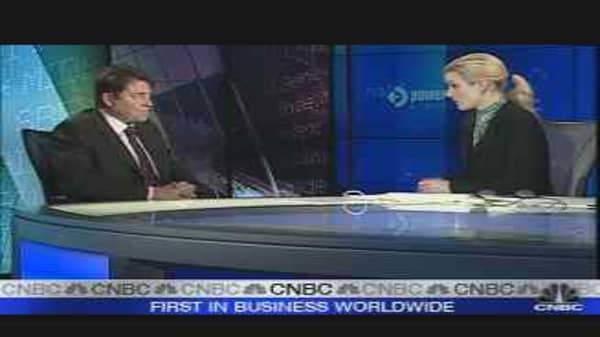The revelations were particularly embarrassing for Credit Suisse, as it had only recently, after painful restructuring, shaken off a reputation for being accident-prone and springing unpleasant surprises on investors.
"This is very disappointing for Credit Suisse, who only last week produced their 2007 results and bragged how successful they were in comparison with other banks," said Helvea's Thorne.
Writedowns on Range of Exposures
The write-downs were across the range of Credit Suisse's exposures to commercial mortgage-backed securities (CMBS), retail mortgage-backed securities (RMBS) and collateralized debt obligations (CDOs), its spokesman said.
CDOs are repackaged securities with substantial exposure to subprime mortgages, which have suffered a collapse in their value as borrowers have reneged on loans in record numbers.
"It looks like the decline in market indices is accelerating in the first quarter, and that worries me more than the mistakes," said Simon Maughan, an analyst at MF Global.
"If they reveal on the conference call that things are getting worse in the first quarter, that is bad for them and others like Barclays and Deutsche Bank."
Credit Suisse said last week its gross exposure to CMBSs was 25.9 billion Swiss francs ($23.48 billion), its exposure to residential mortgages was 8.7 billion francs and to CDOs 2.7 billion.
The internal review that identified mismarkings and pricing errors by a small number of traders in its Structured Credit Trading business was continuing, said the bank.
"The spooky bit is the mismarking, and the impression that the company is not on top of things," said another analyst at a U.S. bank in London.
Credit Suisse also said it was assessing whether any of the write-downs could affect its 2007 results. Only last week it unveiled fourth-quarter net profit of 1.329 billion francs, and trimmed its subprime-linked write-downs for last year to 2 billion francs.
Bond Issue Triggers Disclosure
The latest announcement was triggered by disclosure requirements relating to the listing of a $2 billion bond by Credit Suisse which closes on Feb. 19.
Bear Stearns's Chris Wheeler said in a note that Credit Suisse's auditor, KPMG, discovered the mismarkings and errors during an audit it was conducting for the bond issue and subsequently refused to sign off on the review.
"The traders involved in this situation have been suspended by the bank on full pay while the investigation continues."
A bank auditor, who asked not to be identified, said he suspected there may have been problems with how Credit Suisse had valued its exposures, a subject that has been at the centre of controversy in recent months.
Some banks, including UBS, have been accused by investors of dragging their feet in adjusting the values of their securities portfolios to reflect their true market value, a procedure known as "marking to market."
Credit Suisse declined to comment on the Bear Stearns note but confirmed that KPMG is the bank's auditor.
The bank estimated it was still profitable in the first quarter to date, and the final determination of the reductions will depend on further results from its review and on market conditions.
The Qatar Investment Authority bought a stake of 1 to 2 percent in Credit Suisse, the Financial Times reported on Tuesday, saying the investment was believed to have cost no more than $500 million.



